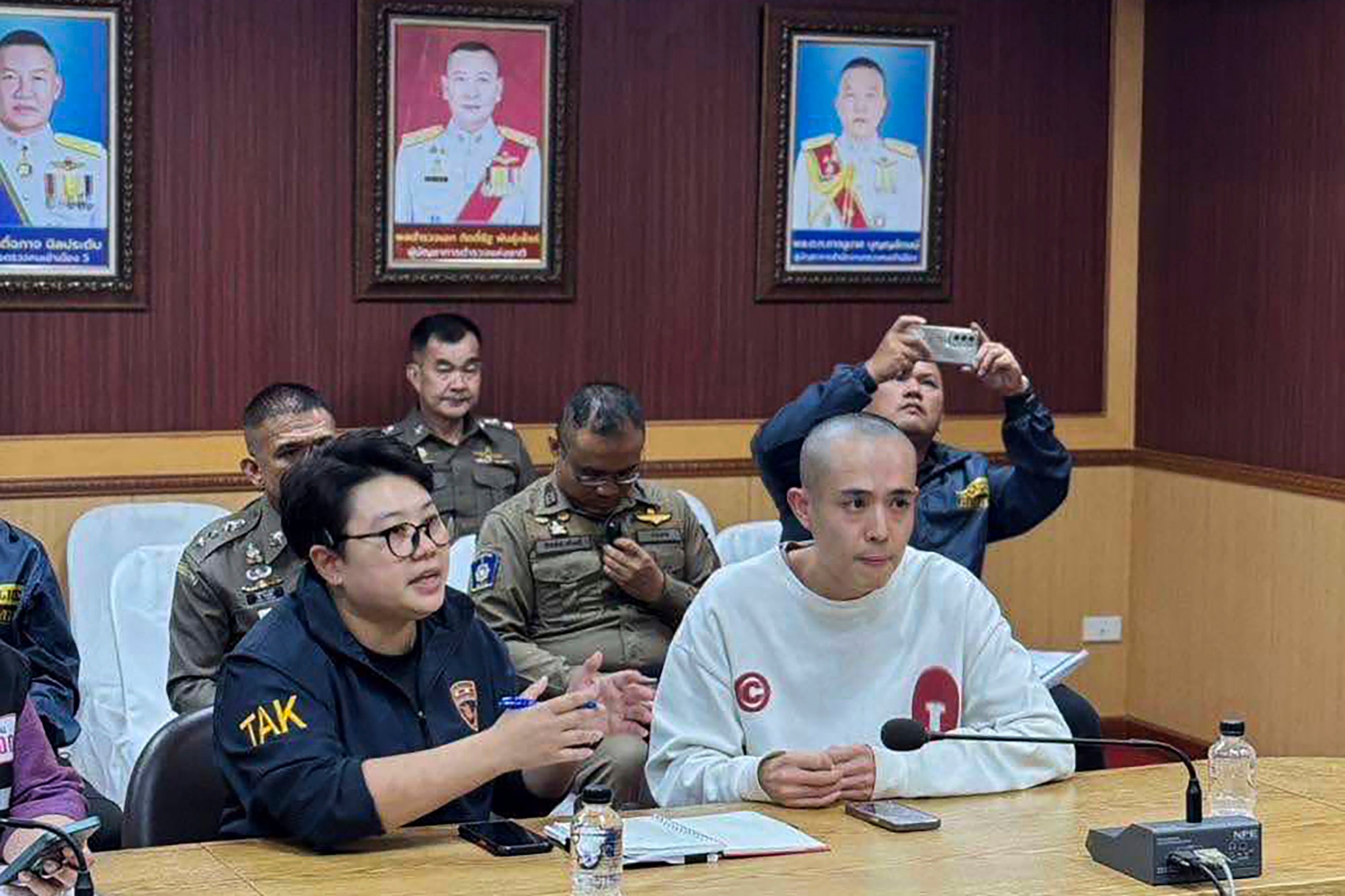Chinese actor Wang Xing says he was trafficked to Myanmar
Actor says he was forced to work at a cyber fraud centre scamming Chinese people

Your support helps us to tell the story
From reproductive rights to climate change to Big Tech, The Independent is on the ground when the story is developing. Whether it's investigating the financials of Elon Musk's pro-Trump PAC or producing our latest documentary, 'The A Word', which shines a light on the American women fighting for reproductive rights, we know how important it is to parse out the facts from the messaging.
At such a critical moment in US history, we need reporters on the ground. Your donation allows us to keep sending journalists to speak to both sides of the story.
The Independent is trusted by Americans across the entire political spectrum. And unlike many other quality news outlets, we choose not to lock Americans out of our reporting and analysis with paywalls. We believe quality journalism should be available to everyone, paid for by those who can afford it.
Your support makes all the difference.A 22-year-old Chinese actor who had gone missing near the Thailand-Myanmar border said he was a victim of human trafficking after being rescued from an area where online scam networks operate.
Wang Xing's family had requested help from the Chinese embassy in Thailand after the actor went missing in northern Thailand's Tak province bordering Myanmar. Thai authorities found him in Myanmar and brought him back for questioning, police said.
"From initial inquiry, we believe he was a victim of human trafficking," police inspector general Thatchai Pitaneelaboot told local reporters on Wednesday. He was told there was a casting call in Thailand but was instead trained to scam other Chinese people, Mr Thatchai said, adding he was not assaulted or abused.
Mr Wang told the Thai police that a group of armed people sent him to a scam centre, where he found at least 50 others trapped like him, according to a video clip released by The Beijing News.
The actor said he realised he was not in Thailand when the "armed people pushed me into the car".
"There were about 50 people in the building that I was in. There were more in another building, and people came from different countries," he said, adding that he was forced to practice typing for two to three days under high pressure.
"I can’t sleep. I can’t eat. And I didn’t even have the time to pee," Mr Wang added.
The Thai police inspector said Mr Wang told them has had worries about Thailand despite the experience and would visit again.
The case was widely discussed on Chinese social media and there were concerns it could dent Thailand's hospitality and tourism industry, which is a key driver of Southeast Asia's second-largest economy and for which China is the main source market.
"We have to manage this well so it does not impact Thai tourism," Thai prime minister Paetongtarn Shinawatra said.
Last year, Thailand welcomed 35.55 million foreign visitors, 6.74 million of them from China.
China's foreign ministry said it was in touch with its embassies and would "continue to follow up on the progress of the incident".
Southeast Asia, especially border towns in Thailand, Myanmar and Laos, has become a hub for telecom and other forms of cyber fraud, according to the UN, which says hundreds of thousands of people have been trafficked to work in scam centres.
Join our commenting forum
Join thought-provoking conversations, follow other Independent readers and see their replies
Comments